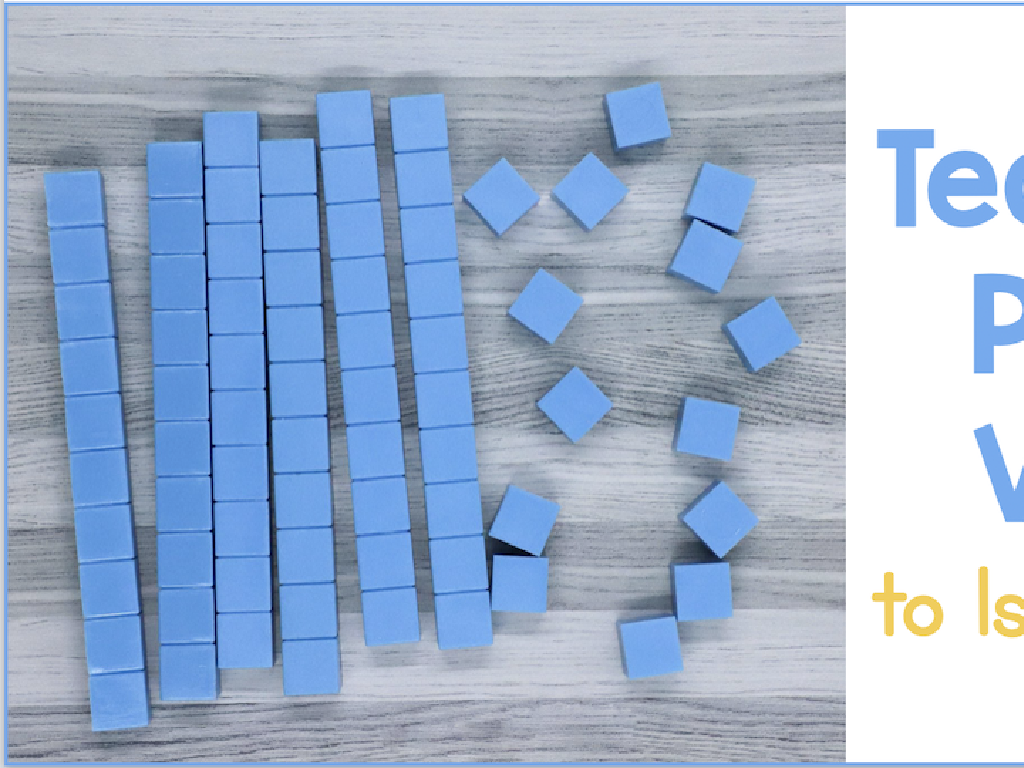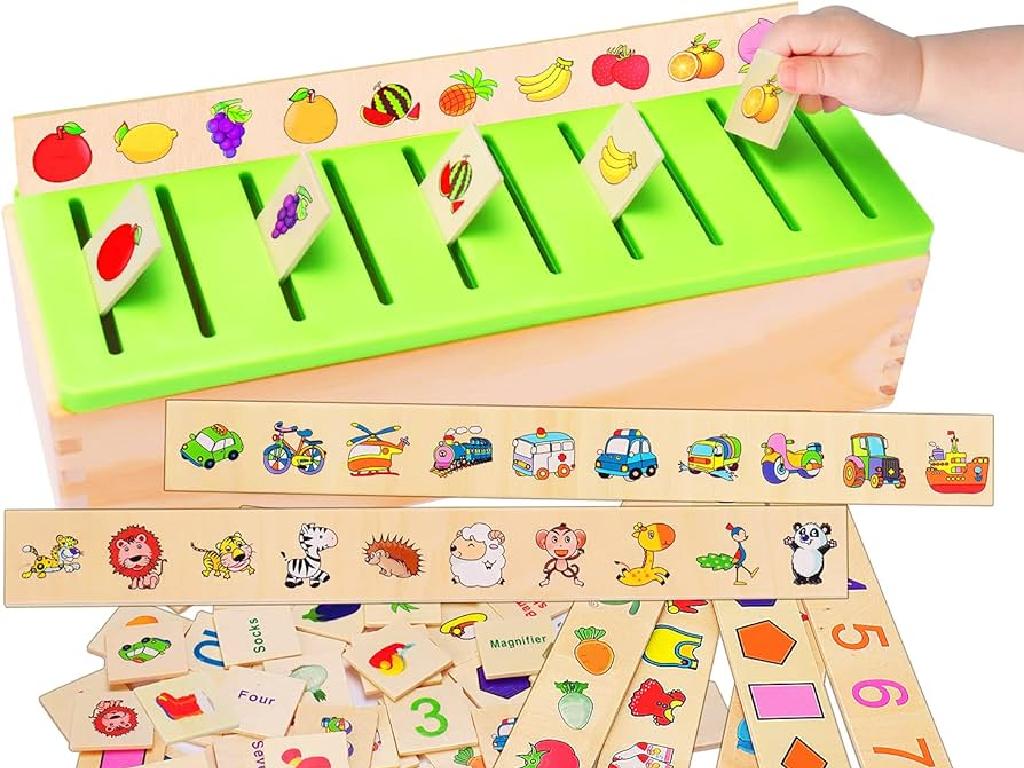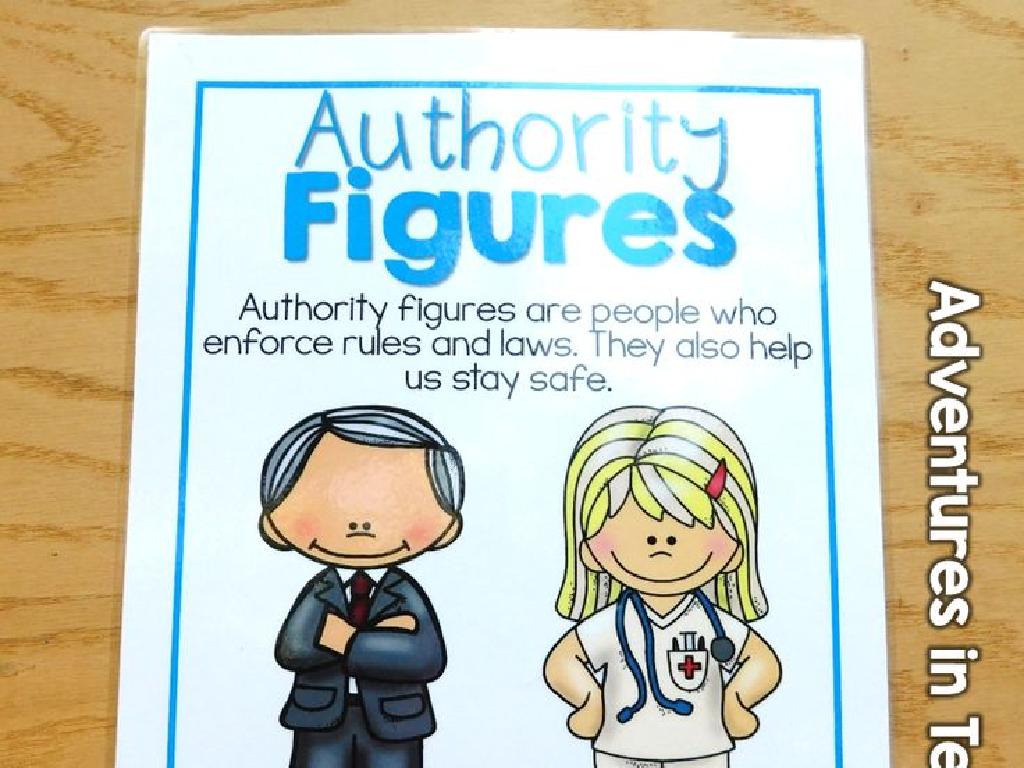Determine The Meaning Of Words Using Synonyms In Context
Subject: Language arts
Grade: Sixth grade
Topic: Context Clues
Please LOG IN to download the presentation. Access is available to registered users only.
View More Content
Understanding Synonyms in Context
– Define ‘Context Clues’
– Clues in the text that help us define words
– Today’s Objective: Using synonyms
– Learn to find and use words with similar meanings
– Importance of synonyms
– Synonyms help us grasp the meaning of unfamiliar words
– Practice with examples
– We’ll look at sentences and find synonyms to explain new words
|
This slide introduces the concept of context clues and focuses on the use of synonyms to determine the meaning of unfamiliar words. Context clues are hints found within a sentence or passage that can help readers figure out the meaning of a new word. Synonyms, which are words with similar meanings, are particularly useful as context clues. When a synonym is provided in the text, it can directly help students infer the meaning of the new word. During the lesson, provide students with sentences containing new vocabulary and guide them to identify synonyms within the context to decode the meanings. Encourage students to discuss their thought process and reasoning for choosing particular synonyms as clues.
Understanding Synonyms in Context
– Define ‘Synonym’
– A synonym is a word that has the same or nearly the same meaning as another word.
– Common synonyms examples
– ‘Happy’ and ‘joyful’, ‘sad’ and ‘unhappy’, ‘fast’ and ‘quick’.
– Synonyms’ subtle differences
– ‘Shout’ and ‘yell’ both mean to speak loudly, but ‘yell’ can imply anger.
– Using synonyms in context
– Context helps us choose the right synonym to convey the exact tone or meaning.
|
This slide introduces the concept of synonyms, which are words with similar meanings, to help students understand how to determine the meaning of words using context clues. Provide clear definitions and examples of common synonyms, and explain how even synonyms can have slight differences in meaning, which can be important in understanding and using language effectively. Emphasize the importance of context in choosing the most appropriate synonym, as it can affect the nuance and clarity of communication. Encourage students to think of additional synonyms and discuss how context might influence their choice of words in different scenarios.
Using Synonyms as Context Clues
– Spotting synonyms in sentences
– Look for words with similar meanings around the unfamiliar word.
– Deciphering words via synonyms
– Use the known synonyms to understand the new word’s meaning.
– Practice with sample sentences
– Try finding synonyms in provided examples to grasp word meanings.
|
This slide aims to teach students how to use synonyms as context clues to determine the meaning of unfamiliar words. Start by explaining that synonyms are words with similar meanings and can often be found near an unknown word, providing hints to its meaning. Encourage students to look for these clues in sentences and use them to infer the definition of new vocabulary. Provide practice sentences and guide students through identifying synonyms and using them to understand the context. This activity will enhance their reading comprehension and vocabulary skills.
Reading Comprehension: Synonyms as Context Clues
– Read a passage as a class
– Spot synonyms within the text
– Find words that have similar meanings to the unknown words
– Discuss synonym context clues
– How do these synonyms clarify the meaning?
– Comprehend the passage better
– Understanding synonyms helps grasp the overall message
|
This slide is aimed at enhancing students’ reading comprehension by focusing on the use of synonyms as context clues. Begin by reading a passage together in class, which will provide a shared experience for discussion. Encourage students to identify synonyms in the passage and discuss how these similar words provide clues to the meaning of more challenging vocabulary. Emphasize that understanding synonyms is crucial for grasping the overall message of the text. For the activity, students can work in pairs or small groups to find synonyms and infer meanings, fostering collaborative learning. Prepare a list of passages with rich vocabulary to choose from, and consider having a few examples ready to demonstrate the process.
Group Activity: Synonym Search
– Break into small groups
– Receive a worksheet with sentences
– Find synonyms in sentences
– Look for words similar to the highlighted ones
– Underline clues to word meanings
– Synonyms help understand the highlighted words
|
This group activity is designed to enhance students’ understanding of how synonyms serve as context clues for determining the meaning of unfamiliar words. Divide the class into small groups to foster collaboration. Each group will receive a worksheet containing sentences with certain words highlighted. Students must work together to find and underline synonyms within the sentences that provide clues to the meanings of the highlighted words. As a teacher, prepare to circulate the room, offering guidance and ensuring that each group is on task. Possible activities for different groups could include varying the difficulty of the sentences, using different sets of vocabulary words, or even having students create their own sentences using a list of new words. This activity will help students practice using context to identify the meaning of words, an essential skill in reading comprehension.
Share and Reflect: Synonyms in Context
– Groups present their findings
– Discuss challenging words
– Were there words that were hard to figure out?
– Explore confusing synonyms
– Why were some synonyms confusing in the context they were used?
– Reflect on reading comprehension
– How does understanding synonyms help us understand the whole text better?
|
This slide is meant to facilitate a classroom discussion where students will share the results of their group work on identifying synonyms in context. Encourage each group to present the words they found and the context clues that helped them understand the meanings. Open the floor for discussion about any words that were particularly challenging and why. This is also an opportunity to delve into why some synonyms might be confusing, perhaps due to nuances in meaning or connotation. Finally, guide students to reflect on how this exercise can improve their overall reading comprehension, emphasizing that understanding the meaning of words in context is a critical skill for grasping the full message of a text. The teacher should be prepared to provide examples and lead a constructive conversation that reinforces the learning objectives.
Class Activity: Create Your Own Clues!
– Write sentences with new vocabulary
– Use synonyms as context clues
– Include a word similar in meaning to help explain the new word
– Share and discuss in class
– Enhance vocabulary skills
|
This activity is designed to help students practice using context clues to determine the meaning of new words, specifically through the use of synonyms. Each student will write original sentences that include a new vocabulary word and a synonym that provides context for that word. After writing, students will have the opportunity to share their sentences with the class, and as a group, we will discuss the effectiveness of the synonyms as clues for understanding the new words. This exercise will enhance their ability to infer meaning from text and expand their vocabulary. For the teacher: Prepare a list of new vocabulary words appropriate for sixth graders. Monitor the students as they work, providing assistance as needed. Be ready to facilitate the discussion, ensuring that each student has a chance to participate.
Wrapping Up: Synonyms and Context Clues
– Review: Synonyms as clues
– Benefits of this strategy
Understanding synonyms helps you grasp the meaning of new words without a dictionary.
– Homework: Article or book exploration
Choose a piece of writing you enjoy.
– Discover words and their synonyms
Note down unfamiliar words and guess their synonyms from the context.
|
As we conclude today’s lesson, remind students how identifying synonyms in context can aid in understanding the meaning of unfamiliar words, enhancing their reading comprehension skills. Encourage them to apply this strategy to all their reading materials. For homework, students should select an article or a book chapter of their choice, identify new vocabulary, and deduce the meanings of these words by considering the synonyms provided in the context. This exercise will help reinforce today’s lesson and prepare them for more advanced reading tasks. In the next class, be prepared to discuss the new words they found, the synonyms that helped them understand these words, and how this strategy has improved their reading experience.






